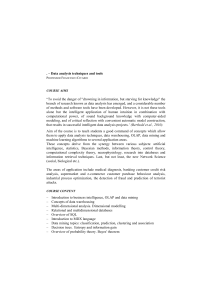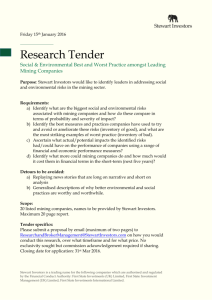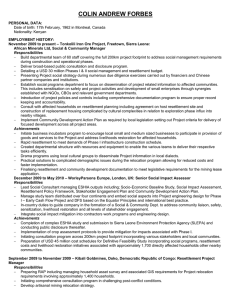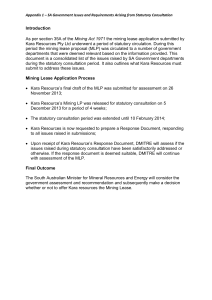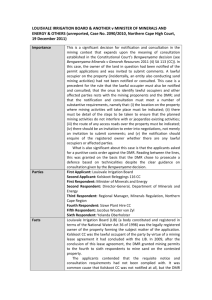Both Ends
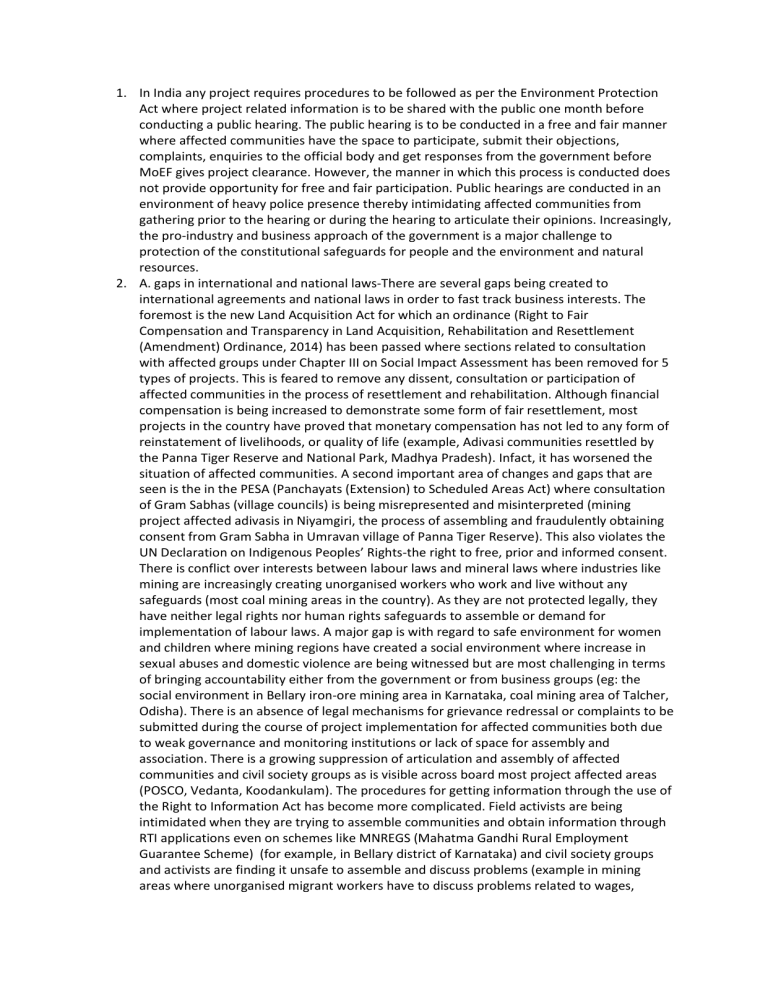
1.
In India any project requires procedures to be followed as per the Environment Protection
Act where project related information is to be shared with the public one month before conducting a public hearing. The public hearing is to be conducted in a free and fair manner where affected communities have the space to participate, submit their objections, complaints, enquiries to the official body and get responses from the government before
MoEF gives project clearance. However, the manner in which this process is conducted does not provide opportunity for free and fair participation. Public hearings are conducted in an environment of heavy police presence thereby intimidating affected communities from gathering prior to the hearing or during the hearing to articulate their opinions. Increasingly, the pro-industry and business approach of the government is a major challenge to protection of the constitutional safeguards for people and the environment and natural resources.
2.
A. gaps in international and national laws-There are several gaps being created to international agreements and national laws in order to fast track business interests. The foremost is the new Land Acquisition Act for which an ordinance (Right to Fair
Compensation and Transparency in Land Acquisition, Rehabilitation and Resettlement
(Amendment) Ordinance, 2014) has been passed where sections related to consultation with affected groups under Chapter III on Social Impact Assessment has been removed for 5 types of projects. This is feared to remove any dissent, consultation or participation of affected communities in the process of resettlement and rehabilitation. Although financial compensation is being increased to demonstrate some form of fair resettlement, most projects in the country have proved that monetary compensation has not led to any form of reinstatement of livelihoods, or quality of life (example, Adivasi communities resettled by the Panna Tiger Reserve and National Park, Madhya Pradesh). Infact, it has worsened the situation of affected communities. A second important area of changes and gaps that are seen is the in the PESA (Panchayats (Extension) to Scheduled Areas Act) where consultation of Gram Sabhas (village councils) is being misrepresented and misinterpreted (mining project affected adivasis in Niyamgiri, the process of assembling and fraudulently obtaining consent from Gram Sabha in Umravan village of Panna Tiger Reserve). This also violates the
UN Declaration on Indigenous Peoples’ Rights-the right to free, prior and informed consent.
There is conflict over interests between labour laws and mineral laws where industries like mining are increasingly creating unorganised workers who work and live without any safeguards (most coal mining areas in the country). As they are not protected legally, they have neither legal rights nor human rights safeguards to assemble or demand for implementation of labour laws. A major gap is with regard to safe environment for women and children where mining regions have created a social environment where increase in sexual abuses and domestic violence are being witnessed but are most challenging in terms of bringing accountability either from the government or from business groups (eg: the social environment in Bellary iron-ore mining area in Karnataka, coal mining area of Talcher,
Odisha). There is an absence of legal mechanisms for grievance redressal or complaints to be submitted during the course of project implementation for affected communities both due to weak governance and monitoring institutions or lack of space for assembly and association. There is a growing suppression of articulation and assembly of affected communities and civil society groups as is visible across board most project affected areas
(POSCO, Vedanta, Koodankulam). The procedures for getting information through the use of the Right to Information Act has become more complicated. Field activists are being intimidated when they are trying to assemble communities and obtain information through
RTI applications even on schemes like MNREGS (Mahatma Gandhi Rural Employment
Guarantee Scheme) (for example, in Bellary district of Karnataka) and civil society groups and activists are finding it unsafe to assemble and discuss problems (example in mining areas where unorganised migrant workers have to discuss problems related to wages,
inhuman working conditions (example in the brick kilns of Rangareddy district in Telangana) or with respect to affected communities having peaceful assembly to dialogue with government (example, police firing opened in Kakarapalli village in Srikakulam district of
Andhra Pradesh where people were peacefully protesting against the proposed power plant).
3.
Guidelines for implementation of environment laws for containing pollution and hazardous material from being dumped into water bodies and people’s lands, are very weak and people are being intimidated from assembly or questioning the authorities (uranium mining project of UCIL set up in Cuddapah district of Andhra Pradesh).
4.
Measures and actions to mitigate these challenges-the spirit of the Indian Constitution has to be respected whereas policies are emerging which conflict with legal safeguards. the amendments being brought to the laws like the Land Acquisition Act, the Mines Act, the
Fifth Schedule of the Constitution that protects land and other rights of indigenous people, the dilution of the PESA, the Water Act, the non-implementation of the Forest Rights Act are all examples of how policy changes are being brought to hasten business interests at the cost of human rights and environmental safety. The statutory regulatory and monitoring bodies like the Human Rights Commissions in India are made toothless due to lack of funds, man power and structural support systems that are needed for follow up on cases represented to these bodies. Any associations or bodies that are assembling or speak the language of human rights are being strictly monitored (article by Dr.EAS Sarma “The
Intelligence Bureau and it’s not very intelligent report on NGO” published in the Economic and Political Weekly, Vol.XLIX, No.26-27, June 2014). Increasingly NGOs are finding it difficult to assemble or make peaceful meetings with affected communities. The Social Impact
Assessment is very important for any process of setting up projects and during the implementation and post closure of any project, whether government or private. The dilution of this aspect is very dangerous to articulation of grievances. Industrial needs cannot take precedence of this scale against people’s rights and environment issues. Hasty approval of projects without due consultation and consent of public and affected communities is dangerous to democracy. Compensating due procedures with increase in monetary compensation for any displacement is not a just form of development. The most challenging to articulate and bring accountability is the violence against women. Unless labour laws, employment safety and regulatory institutions are strengthened, setting up any projects whether private or government owned will be dangerous to human rights safety.




